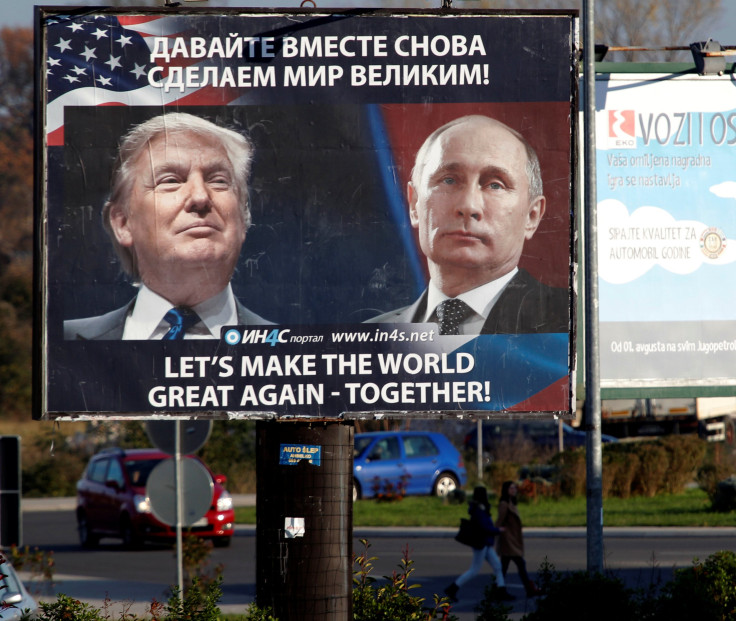What Does Russia Want? Putin Plans To Spread Fake News, But Also Fight It

In a dual set of separate but bizarre, odd and mutually dissonant announcements from Russia that again raise the specter of Cold War in the Putin-Trump era, a foreign ministry spokeswoman declared Wednesday that the country will try to weed out fake news by flagging and identifying it on the department’s website. On the same day, the country's defense minister announced that the Russian army has set up troops for “informational operations,” in order to make propaganda “smart, competent and effective.”
Regarding the safeguard measures against fake news, Maria V. Zakharova, the foreign ministry spokeswoman, told state news agency RIA Novosti Wednesday: “Here we will make an example of such propaganda dumped by various media outlets, providing links to their sources, and so on.”
So far, since it was launched on its official website on Wednesday, five articles (Bloomberg, NBC News, New York Times, Telegraph, Santa Monica Observer) were slapped with a "FAKE" label and a disclaimer in Russian language that translates to “this material contains data, not corresponding to the truth.” However, details about the process by which an article enters this list were not revealed.
Zakharova said that news that did not allow Russia to respond with a reaction and carried unverified facts and information from unidentified sources, which amounts to opinion, would be flagged. She also added that they have included an appeal process under which news organizations can make their case.
“Russia is being accused of doing this, but how can you accuse us of disseminating untrue information by government agencies and the media while you are doing the same against Russia? While publishing information about Russia, the world media is doing the same thing — they never cite concrete facts — this is a sad paradox,” Zakharova said, according to the New York Times.
The “sad paradox” that Zakharova highlighted about media reports spreading fallacious information against Russia was contradicted in an almost hypocritical way by Defense Minister Sergey Shoygu's announcement about Russian military's "Information Warfare Units" for propaganda news.
“In the meantime, an army for informational operations has been set up that is much more effective and stronger than what we had previously created for the purpose of what we call counter-propaganda,” he told parliament, state news agency Itar-Tass reported.
Besides a vague reference made by the head of parliament's defense and security committee, Vladimir Shamanov about the new unit dealing with cyberwarfare to Interfax news agency, not much is known about the details of Shoygu’s announcement.
Many have raised concerns that the unit's work may be akin to the misinformation and fallacious reports spread in the aftermath of the Malaysia Airlines Flight 17 tragedy that killed all 298 civilians on board. Moreover, if their fake news test doesn't accurately and diligently counter fake news spread by domestic Russian outlets (like it says it would) it is a serious cause for concern for everyone.
© Copyright IBTimes 2025. All rights reserved.






















